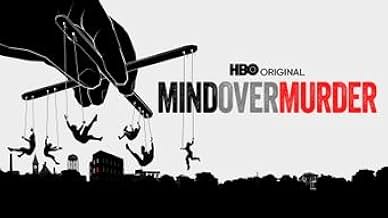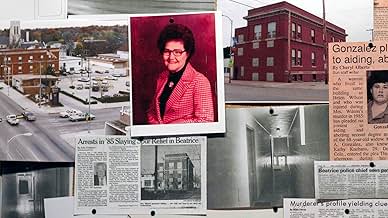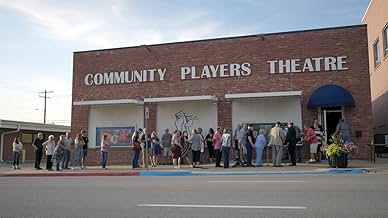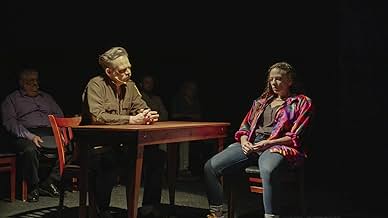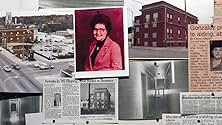Chronicles the bizarre and psychologically complex story of six individuals who were convicted for the 1985 murder of a beloved 68- year-old grandmother, Helen Wilson, in Beatrice, Nebraska.Chronicles the bizarre and psychologically complex story of six individuals who were convicted for the 1985 murder of a beloved 68- year-old grandmother, Helen Wilson, in Beatrice, Nebraska.Chronicles the bizarre and psychologically complex story of six individuals who were convicted for the 1985 murder of a beloved 68- year-old grandmother, Helen Wilson, in Beatrice, Nebraska.
- Awards
- 4 nominations total
Browse episodes
Featured reviews
I have never reviewed before and am writing this positive review to counteract the effects of the premature negative reviews. This documentary was fascinating and horrifying. I really recommend giving it a chance. Most of the negative reviews I read, whatever their complaint, were written after only two or three episodes. Stick with it! This doc was thoughtfully constructed to reveal all the various elements of the story at the exact right time. Above all, I am thoroughly impressed with the director's success at getting so many meaningful interviews from all points of view at various stages of the project. What fabulous work!
This is one of the few series that I feel really used the length to build an emotional story for the audience too. The ending episode had a feeling a catharsis for me as well. You'll see some complaints about the length, but it's necessary to look at this from all angles. The individuals testimony were heartfelt.
Burt Searcy is an asshole though, and the guy in the play did him perfect. Looking at his phone because that's easier than facing the pain he caused these people just because they were "undesirables." He wants to talk about how this is hurtful to Helen's family, this is just capitalizing on their pain, but who's the one who inserted himself into this and whined about his legacy to the cameras? He didn't "solve" this case because he's a kind person, he did it because he wanted to live forever through it and erase his cloud that came with leaving the Beatrice PD. A very repulsive man.
Burt Searcy is an asshole though, and the guy in the play did him perfect. Looking at his phone because that's easier than facing the pain he caused these people just because they were "undesirables." He wants to talk about how this is hurtful to Helen's family, this is just capitalizing on their pain, but who's the one who inserted himself into this and whined about his legacy to the cameras? He didn't "solve" this case because he's a kind person, he did it because he wanted to live forever through it and erase his cloud that came with leaving the Beatrice PD. A very repulsive man.
A mark of intelligence is the willingness and ability to change one's perception as new information becomes available. It's rarely seen among group thinkers, be it a tight knit neighborhood or a virtual community with an opinion. The movie Mind over Murder is remarkable when we see people literally putting themselves in others' situations, changing their minds and imparting their collective gained wisdom on others.
As I suspected those slamming the series did not watch through to the end. At first I too was put off a bit by the pacing and the play aspect, but then I began to understand the reason for it. By the last episode I knew I was seeing something truly unique and a project that tangibly led to healing in this small town.
The true crime murder component of the movie is a vehicle for what I saw as something far more meaningful which is humans softening and beginning to understand one another in the face of heightened emotion and years of pain and solidifying opinions. It is something the residents of our world need so much. This docuseries was life changing for so many people who were in pain. I felt that while watching the last episode. Are there moments of cringe? Yes. But they serve a purpose. Give it a chance. We learn in the movie that some people simply don't want to hear the truth after investing so many years in a certain way of thought. I recommend softening, opening your mind and then diving in to this.
As I suspected those slamming the series did not watch through to the end. At first I too was put off a bit by the pacing and the play aspect, but then I began to understand the reason for it. By the last episode I knew I was seeing something truly unique and a project that tangibly led to healing in this small town.
The true crime murder component of the movie is a vehicle for what I saw as something far more meaningful which is humans softening and beginning to understand one another in the face of heightened emotion and years of pain and solidifying opinions. It is something the residents of our world need so much. This docuseries was life changing for so many people who were in pain. I felt that while watching the last episode. Are there moments of cringe? Yes. But they serve a purpose. Give it a chance. We learn in the movie that some people simply don't want to hear the truth after investing so many years in a certain way of thought. I recommend softening, opening your mind and then diving in to this.
There are a few things I don't like about it, but many that I do. It's artfully produced and certainly not a waste of time. At some point I think the town folk even mention that the series is bringing a lot of money to Beatrice, and are urged to cooperate as much as possible with the crew. In the end you get a story full of candor, contradiction and absurdity in equal parts.
Above all, it manages to humanize all the characters despite the extraordinary tale, which itself is quite a feat. Even when they disagree you find a way to relate to each of them. Seeing the same picture from different perspectives is important as you look to explore the key question posed throughout the series: What do you do when the truth you've believed for 35 years may actually be false? There are no easy answers for the individuals, much less for the community.
Above all, it manages to humanize all the characters despite the extraordinary tale, which itself is quite a feat. Even when they disagree you find a way to relate to each of them. Seeing the same picture from different perspectives is important as you look to explore the key question posed throughout the series: What do you do when the truth you've believed for 35 years may actually be false? There are no easy answers for the individuals, much less for the community.
For the people that didn't understand why it was included then gave up before the final episode: you missed something that the rest of us would say was amazing.
Not the quality of the production itself, which seemed well done, but for the impact it had on the locals and particularly on the families involved, some of whom were in the audience.
I'll admit that I did wonder why they were spending any time on it, but it paid off spectacularly.
Most people would have realised that Burt had employed some fairly dodgy interviewing techniques by about episode 4, but seeing his reaction to both the documentary and what he had been told about the play was illuminating.
Not the quality of the production itself, which seemed well done, but for the impact it had on the locals and particularly on the families involved, some of whom were in the audience.
I'll admit that I did wonder why they were spending any time on it, but it paid off spectacularly.
Most people would have realised that Burt had employed some fairly dodgy interviewing techniques by about episode 4, but seeing his reaction to both the documentary and what he had been told about the play was illuminating.
Did you know
- ConnectionsReferenced in Film Junk Podcast: Episode 855: Marcel the Shell with Shoes On (2022)
- How many seasons does Mind Over Murder have?Powered by Alexa
Details
Contribute to this page
Suggest an edit or add missing content



